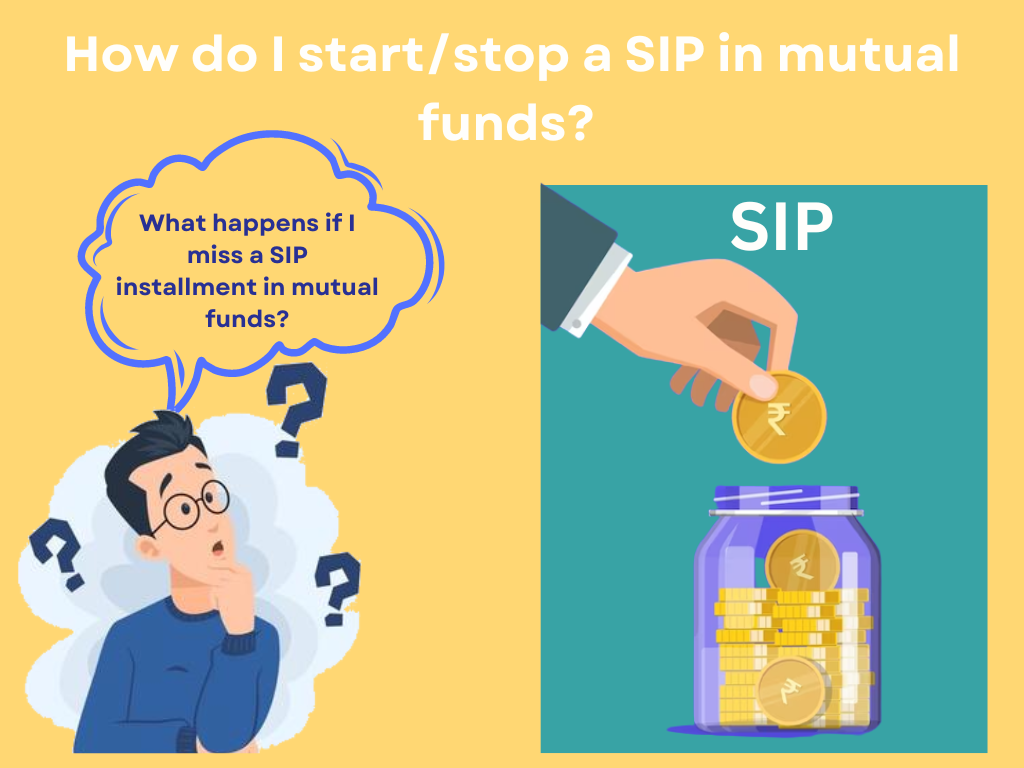How do I start/stop a SIP in mutual funds? What happens if I miss a SIP installment in mutual funds?
Starting and stopping an SIP in mutual funds is a simple process that can be done online or offline. Here are the steps to start and stop an SIP in mutual funds:
Starting an SIP:
Choose the mutual fund: First, choose the mutual fund in which you want to invest.
Register: Register with the mutual fund company or a distributor, such as a bank or brokerage firm.
Select the SIP amount: Decide on the amount you want to invest through SIP and select the frequency of investment (weekly, monthly, or quarterly).
Provide bank details: Provide your bank details and set up a standing instruction with your bank to debit the SIP amount from your bank account on the chosen date.
Submit the form: Submit the SIP form along with the necessary KYC documents to the mutual fund company or the distributor.
Stopping an SIP:
Fill the SIP stop request form: To stop an SIP, fill out the SIP stop request form, which can be downloaded from the mutual fund company's website or obtained from the distributor.
Submit the form: Submit the completed form to the mutual fund company or the distributor along with the necessary KYC documents.
Confirmation: The mutual fund company or the distributor will confirm the SIP stop request within a few days, and the standing instruction with your bank will be cancelled.
Note: It is important to note that if you stop your SIP before completing the minimum investment period, you may be charged an exit load or penalty by the mutual fund company.
What happens if I miss a SIP installment in mutual funds :
Missing a SIP (Systematic Investment Plan) installment in mutual funds can have a few consequences, which are as follows:
Late Payment Fee: Some mutual fund companies charge a late payment fee if the SIP installment is not paid on time. The late payment fee is usually a percentage of the missed installment.
Default in SIP: If the investor misses more than three consecutive SIP installments, the SIP may be considered as a default. In such a scenario, the mutual fund company may cancel the SIP, and the investor may have to pay additional charges for the cancellation.
Impact on Investment Goal: Missing an SIP installment can disrupt the investor's investment plan and affect the achievement of their investment goals. As a result, the investor may need to adjust their investment plan to catch up on the missed installments.
Lower Return on Investment: Missing an SIP installment can affect the overall return on investment. The longer the investor waits to catch up on the missed installment, the higher the loss in the overall return.
To avoid missing an SIP installment, investors can set up an auto-debit facility to ensure that the SIP amount is automatically debited from their bank account on the due date. Also, it is essential to maintain sufficient funds in the bank account to ensure that the SIP installment is paid on time. If an investor misses an installment, it is advisable to pay it as soon as possible to avoid any additional charges and minimize the impact on the investment plan.


